In the early half of the 20th century, the Korean peninsula endured harsh colonization in the hands of the Japanese. After the end of WW II, geo-political interest in the peninsula led to the brutal war between North and South Korea. Apart from colonizing Korea, the Japanese waged a war against Korean arts and culture. Which is why even though Korean movies were made during Japanese occupation, the film industry never thrived. It was only in the early 1960s with films like The Housemaid (1960), Aimless Bullet (1961), and The Coachman (1961), South Korean cinema enjoyed its first golden age.
Nevertheless, South Korea’s transition to democracy took a few more decades. And so, censorship directly affected the development of Korean cinema. 1995 was an important year in the history of Korean cinema. It was the year the government censorship of films was deemed unconstitutional and the censor board was soon disbanded. 1996 onwards, a new generation of filmmakers took over the industry.
Both commercially-minded films and art house dramas were made during this period. But early 2000 onwards, filmmakers like Bong Joon-ho and Park Chan-wook rebranded Korean cinema. They made complex genre cinema, incorporating art house movie aesthetics. Soon, there was an unprecedented commercial boom and international recognition. Gradually, Korean cinema and the much widely popularized K-drama series became the soft power cultural exports of the nation.
Quickly then, here are the best Korean films of the 21st century:
Best Korean Movies
1. J.S.A. (2000)
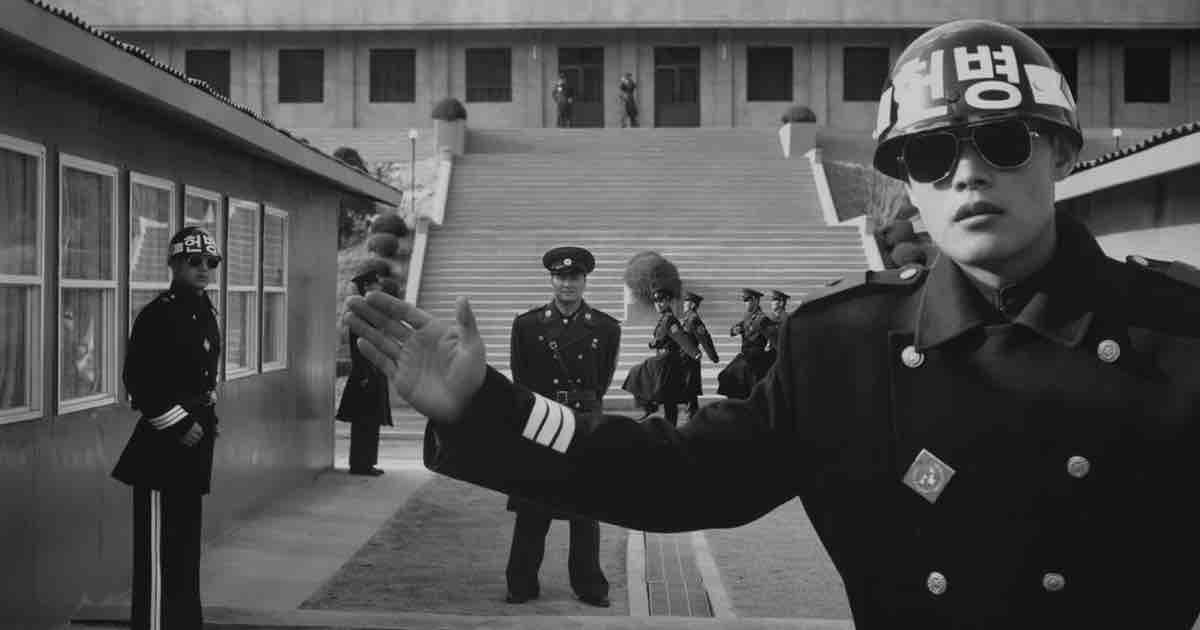
Director Park Chan-wook, before delivering cult hits like Oldboy, led the Korean New Wave with a straightforward thriller. The title indicates the demilitarized zone between North and South Korea. Lee Byung-hun plays a South Korean soldier, accused of killing two North Korean soldiers. South Koreans accuse a North Korean soldier (played by Song Kang-ho) for kidnapping Lee. Lee is alleged to have killed the North Koreans to escape. A neutral investigator is called in to find the truth.
The film is a good starting point to understand the decades of conflict. Park’s humanist touches and two terrific central performances turn this into a gripping mystery.
2. Failan (2001)
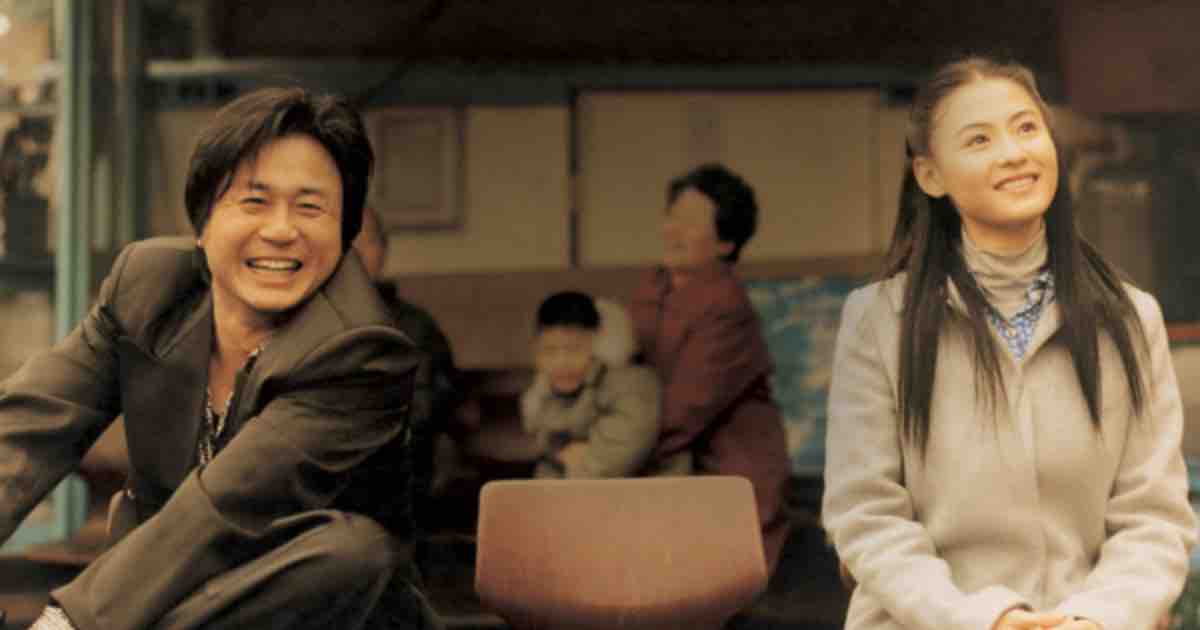
Choi Min-Sik, the magnificent performer, plays a washed-up, third-rate gangster named Kang-jae. Kang’s status, over the years, has diminished among fellow thugs. A young Chinese woman named Failan arrives in Korea to live with her relatives after her parents’ demise. But Failan, whose relatives have immigrated to Canada, is now compelled to marry a stranger, in order to stay in South Korea. Failan, advised to get married on a fake visa, weds Kang-jae.
Failan may sound like a typical melodramatic romance but its non-linear narrative and fantastic performances make it refreshing. Its deeply melancholic tone is heartbreaking. Yet, it never emotionally manipulates with its tragedy and misery.
3. My Sassy Girl (2001)

The endlessly charming romantic comedy subverts all clichés of the genre with only a simple plot line. It’s a boy-meets-girl story, but the silly, unconventional scenarios the romantic pair conjures up are beyond words. The leads Cha Tae-hyun and Jun Ji-hyun share an incredible chemistry, making up for the minor flaws and clichés in the narrative. The first half is a bit of a scattershot with great moments of slapstick comedy. The second half boasts strong emotional elements and is slightly melodramatic.
Despite a series of unbelievable coincidences in the latter half, the performances manage to move us. The film exudes energy, wit, and creativity unlike other generic rom-coms. Director Kwak Jae-yong also skilfully juggles different tones. It ranks in our list of the ’50 Greatest Romances of the 21st Century.’ Watch below:
4. Painted Fire (2002)

The visually and thematically rich Painted Fire chronicles the life of a celebrated 19th century Korean artist Jang Seung-ub. Jang’s remarkable artistic passion paved the way for more powerful works. However, the fire within also made him restless. Popular Korean actor Choi Min-sik plays Jang, incredibly portraying his inner agony and primal instincts. The story also perfectly captures the turbulent sociopolitical scenarios of the era. Director Im Kwon-taek, a legendary figure in South Korean cinema, goes beyond creating a mere hagiography. He profoundly explores the self-doubting existence of a genius artist.
Painted Fire was his 95th film. Known as the ‘father of Korean cinema,’ Im won Best Director at Cannes for the film.
5. Turning Gate (2002)
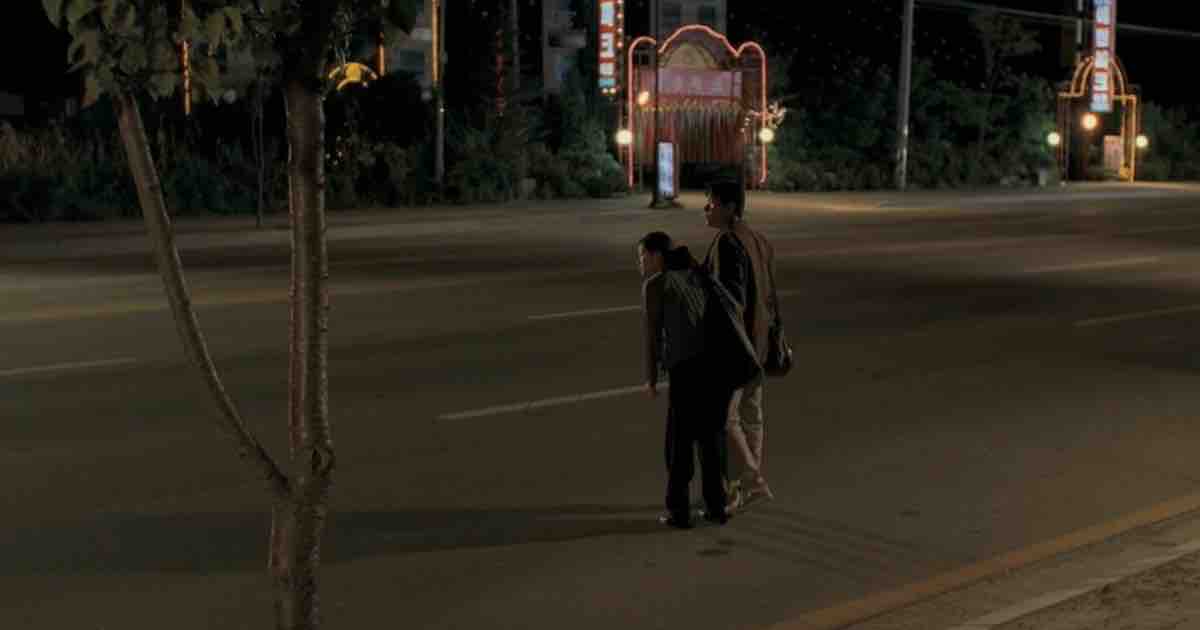
Korean auteur Hong Sang-soo’s works may not be instantly likable, but the more we reflect on them the more insights they offer. His directorial debut The Day Pig Fell into the Well (1996) and Kim Ki-duk’s Crocodile (1996) launched the Korean New Wave cinema. All Hong’s films have a minimalist setting. Cold climate, café, bars, and may be a tourist spot. The characters are mostly young men and women. They smoke, talk a lot, embarrass themselves, and gradually drift apart. Turning Gate takes place in a popular vacation area called Kangwon province.
Hong’s fourth feature realistically deals with a romantic relationship marked by desire as well as rejection. Like all Hong’s films, Turning Gate is aesthetically satisfying and has the director’s trademark theme of reincarnation.
6. Oasis (2002)
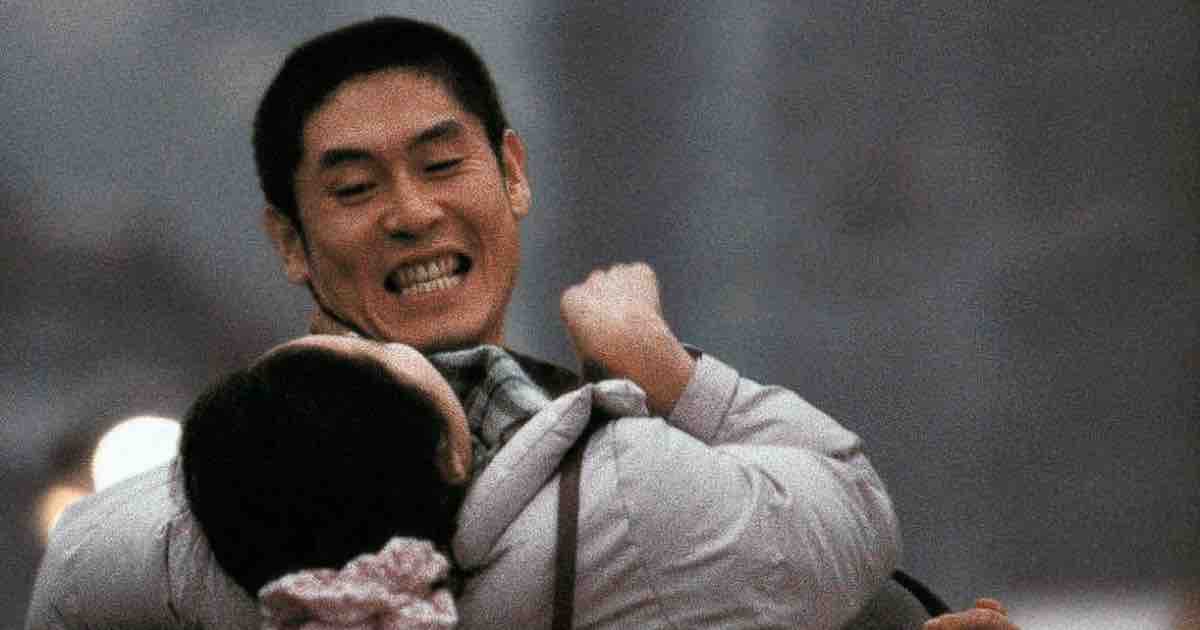
Lee Chang-dong aspired to be a painter but eventually made a name for himself in the theater and literary world. At 43, he turned to filmmaking, and often dealt with one of the toughest themes to explore in cinema — trauma. In his third feature Oasis, Dong’s story revolves around an ex-convict, who falls in love with a woman, affected by cerebral palsy. Both are abandoned by their respective families. The heartfelt love between the leads never eschews taboo subjects, fearing viewer reaction. There is one unsettling moment in the film, which may repel traditional romantic moviegoers.
Our two leads brilliantly tackle the challenges of their flawed roles. Eventually, it’s a realistic love story that forces us to consider our preconceptions and prejudices about societal misfits.
7. The Way Home (2002)

Lee Jeong-Hyang’s sweet, sentimental tale is set in a tiny mountain village. A spoiled and mischievous 7-year old city boy Sang-woo is left by his workaholic mother at his mute grandmother’s home to spend the summer. Sang-woo initially dislikes the remote village, a place without electricity and running water. As time goes by, he takes to the daily rhythms of the serene village with genuine love and trust. There are no big dramatic turns in the narrative, but the film offers some charming little moments. The director wonderfully captures the mundane activities of rural life. In the vein of neo-realist films, she takes a unique social backdrop and uses non-professional actors to tackle universal themes.
The grandmother Kim Eul-boon not only came with no prior acting experience, but had never seen a film. The Way Home was the only film she ever acted in.
8. Vengeance Trilogy (2002, 2003, 2005)
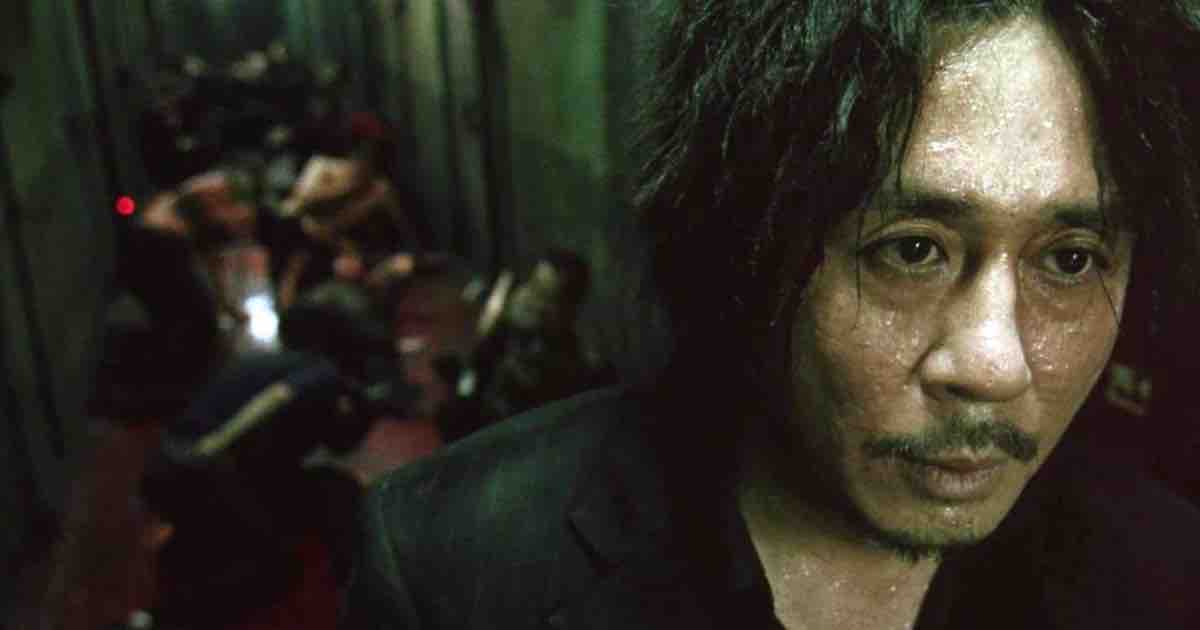
Park Chan-wook’s acclaimed films – Sympathy for Mr. Vengeance, Oldboy, Sympathy for Lady Vengeance – have a common thread even though all tell different stories. All three stories track down the wronged protagonist’s journey to claim vengeance. Oldboy is the most haunting of the three. It captures the act of revenge in its most primeval form. Park’s spellbinding staging techniques compliment Choi Min-sik’s raging performance. Lady Vengeance is the most slick and thematically heavy. Sympathy for Mr. Vengeance is the more morally ambiguous tale of the three.
Park’s trilogy stands apart from other revenge flicks, in how it makes the vital vengeful act so unsettling. Unlike American movies, the bloodbath doesn’t offer a cathartic experience. In fact, these revenge stories are populated with gray-shaded characters.
9. A Tale of Two Sisters (2003)

Besides Park Chan-wook and Bong Joon-ho, Kim Jee-woon is the most stylish among the Korean New Wave filmmakers. He made his directorial debut with the entertaining black comedy The Quiet Family (1998). A Tale of Two Sisters is a profound psychological horror mystery, with the premise of a fairy tale. Two adolescent sisters return home from hospital after an extended mysterious illness. The girls’ father and step mother want them to live happily together. But the sisters are intent on exposing the mother’s wicked side and freeing their father.
It’s a bewildering experience, largely due to the labyrinthine narrative approach. The South Korean film is a very subtle study of a disturbed mind, one that holds up well in repeat viewings. The horror is enhanced by a sense of dread rather than jump scares.
10. Spring, Summer, Fall, Winter……….and Spring (2003)
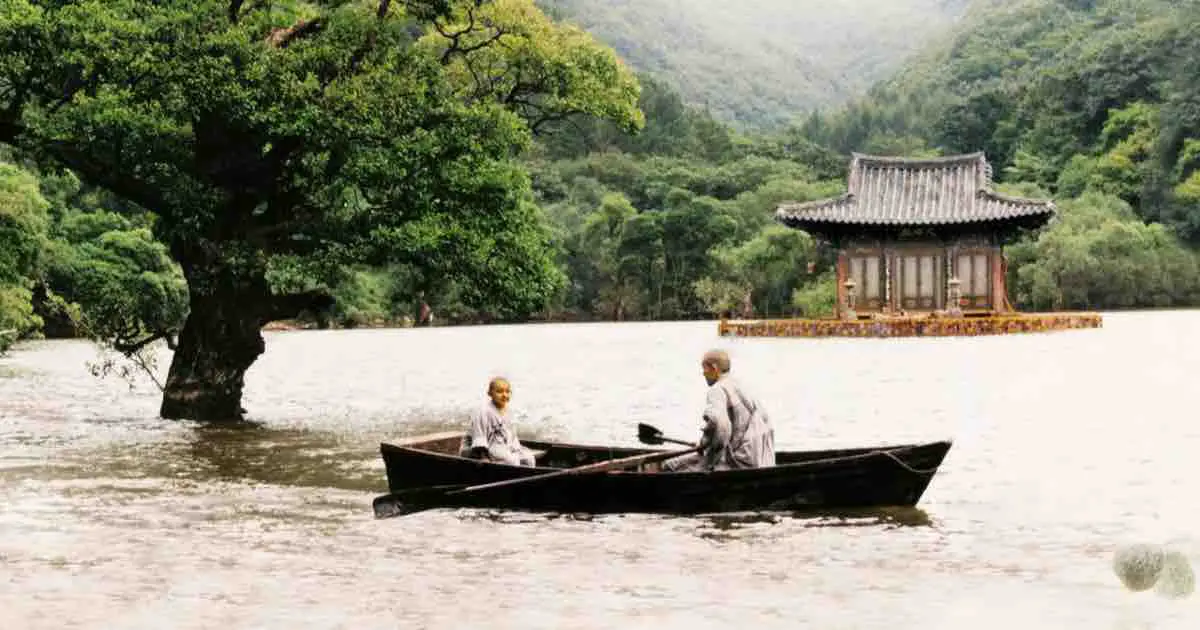
The controversial Korean auteur Kim Ki-duk is known for his shocking portrayal of extreme violence and human brutality. Spring, Summer…. was one of his less violent works. A brilliant meditation on the cycle of life and death, it’s endowed with a wonderful ambience – a floating temple in the middle of a lake. A wise old man and a young student inhabit the temple. Each season denotes the changes in the life of the young boy.
From carrying a huge stone on his back as a punishment to the different vulnerable forest animals, and the awkward sexual awakening of the adolescent, to the eventual spiritual enlightenment as a young man, the film unravels with zen-like calmness. Despite a bare plot structure, director Kim thickly lays meaningful symbols, provoking a great range of interpretations.
11. Memories of Murder (2003)

Fritz Lang’s M & Imamura’s Vengeance is Mine are rare, profound crime films that tackle the subject of serial killings to deftly look into the moral squalor of modern society. One of the greatest Korean movies, Bong Joon-ho’s Memories of Murder belongs to that small list of crime masterpieces. It is based on the series of sex murders that happened between 1986 and 1991 in the mid-western region of Korea. The biggest surprise of this thriller is the protagonist’s portrayal as an inept detective. Bong’s subtle visual compositions demand repeat viewings to fully understand the thematic complexities. Memories of Murder can also be seen as a mesmerizing study of chaos constantly winning over order.
12. 3-Iron (2004)
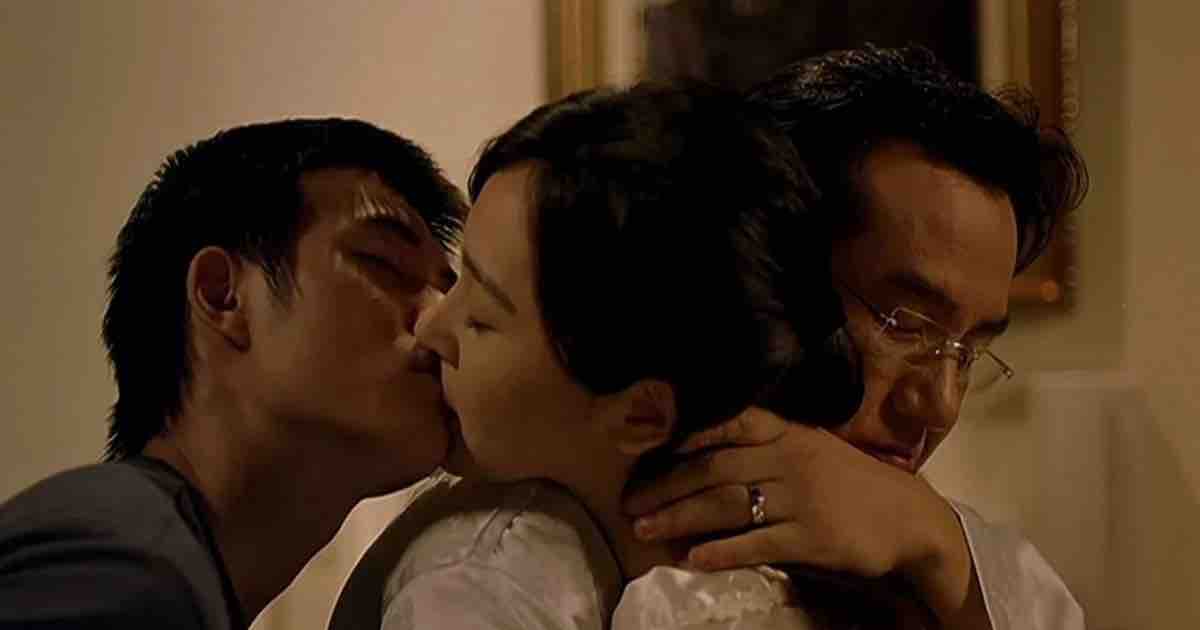
Kim Ki-duk’s unusual romantic drama revolves around an oppressed woman and a young drifter. The woman is caught in an unhappy marriage. The young guy freely breaks into houses of vacationing residents and lives there for a few days. The woman also becomes a partner in the guy’s uncanny house-borrowing escapades. They don’t really need words to communicate, which is an intriguing side of their connection.
Although the film could be divided into three acts, it’s not plot-centered. It doesn’t have intense violent moments like the director’s earlier film The Isle. The storyline becomes increasingly inscrutable in the last half an hour, and ends with a very memorable and purely poetic image. 3-Iron’s hypnotic power and idiosyncratic characters often remind me of Taiwanese auteur Tsai Ming-liang’s films. Both the filmmakers create a transcendent viewing experience, however inconsequential their storylines may be.
13. Samaritan Girl (2004)
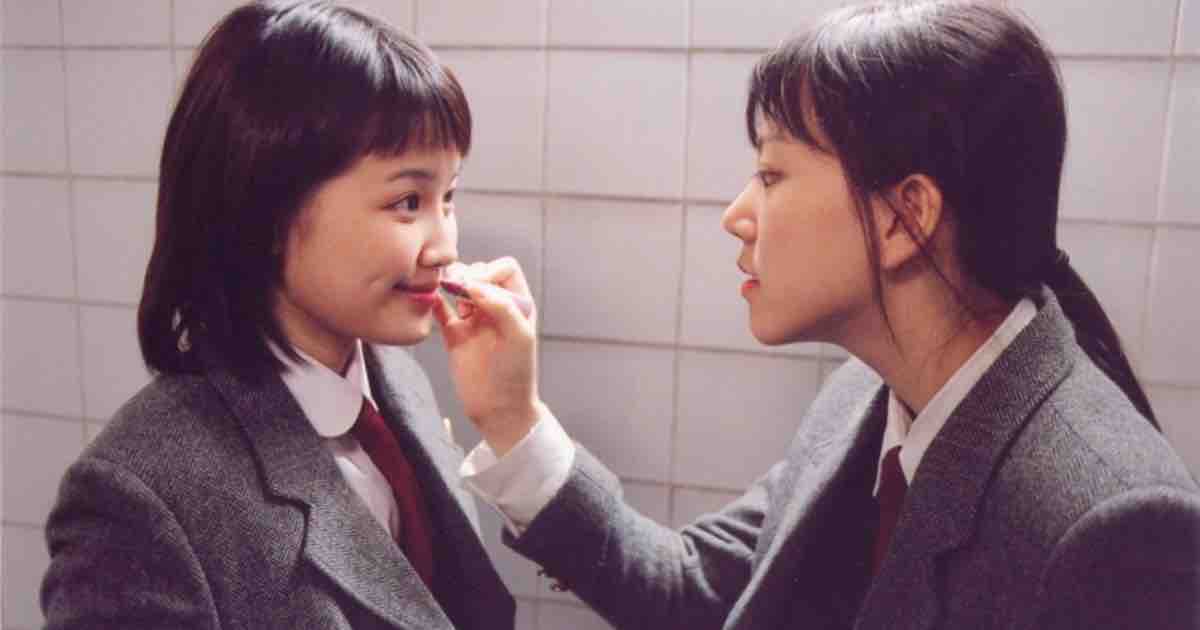
Samaritan Girl didn’t receive as much acclaim as Kim ki-duk’s other films like Spring Summer…., The Isle, 3-Iron, etc. But it’s still a highly contemplative film on the controversial subject of teen prostitution. Unlike some of Kim ki-duk’s deliberately shocking features, Samaritan Girl is profoundly substantial at its core. The story revolves around two adolescent students from a middle-class family, who wish to travel to Europe. To fulfill their dream, one girl works as a prostitute, while the other sets up the clients. Things go smoothly until one of the girls gets caught in the police raid.
Director Kim follows a set narrative, although he invites interpretations on the psychology behind each character’s behavior. He also makes us care about the existential pain of these doomed characters. His approach is non-exploitative and he effortlessly blends myth with the contemporary Korean social reality.
14. A Moment to Remember (2004)
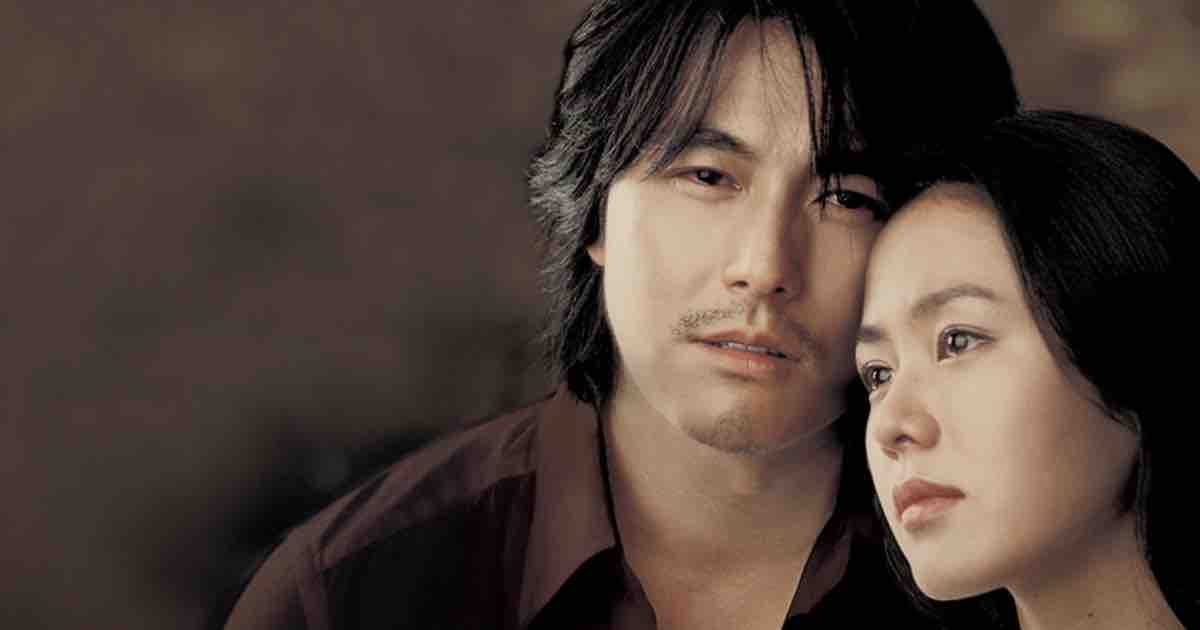
The tear-jerking love story is about a 27-year old fashion designer Kim Su-Jin afflicted by a rare form of Alzheimer’s. Kim’s husband (Chul-Soo), pained over his wife’s ordeal, tries to find a perfect and lasting moment of their love. The film has quite a few emotionally manipulative scenes. Yet, it doesn’t fail to ask haunting questions.
Similar to My Sassy Girl, A Moment to Remember boasts phenomenal character establishing sequences. Director John meticulously builds his two central characters for the viewers to constantly empathize with the young couple’s fate. The highly emotional second-half works despite the melodrama because of the strong first-half.
15. The President’s Last Bang (2005)
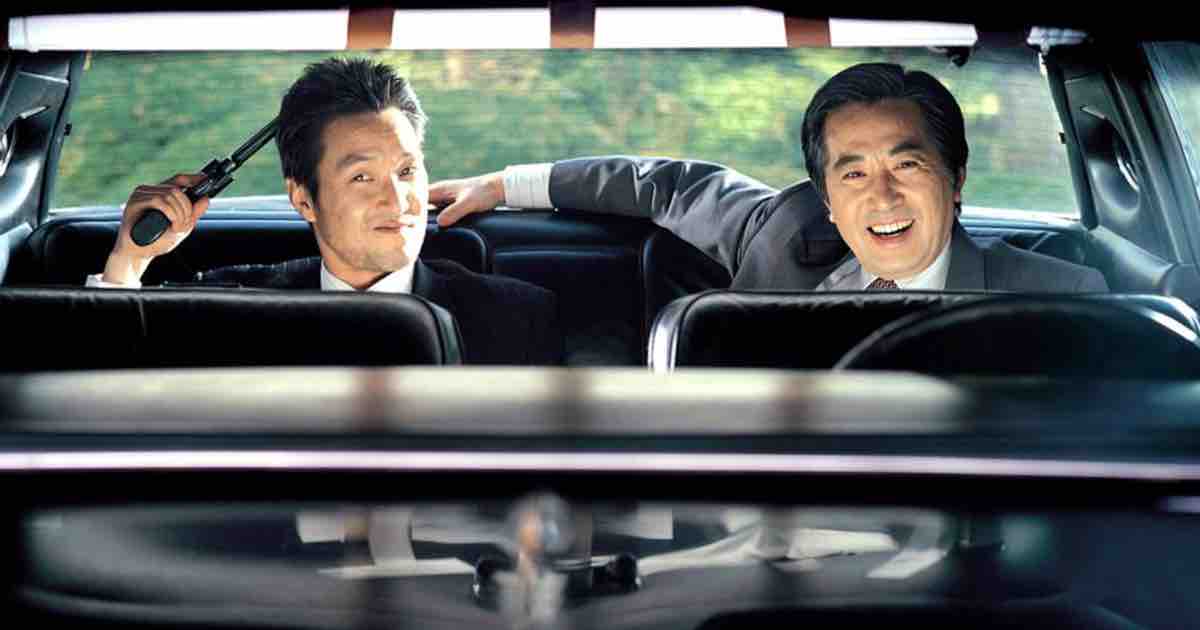
It’s a satirical account of the 1979 assassination of South Korean President Park Chung-hee. The director does a great job establishing the political atmosphere of the time. The frenetic pace and editing pay tribute to classic genre works like Dr. Strangelove and The Manchurian Candidate.
There are a lot of well stylized sequences that remind you of the works of Brian de Palma. But its strongest aspect is how it captures the corrupted authoritarian President. The mordant humor and bloody explosions, particularly in the latter half may not work for all. Nevertheless, it’s a swiftly entertaining study of the volatility of powerful individuals.
16. Welcome to Dongmakgol (2005)
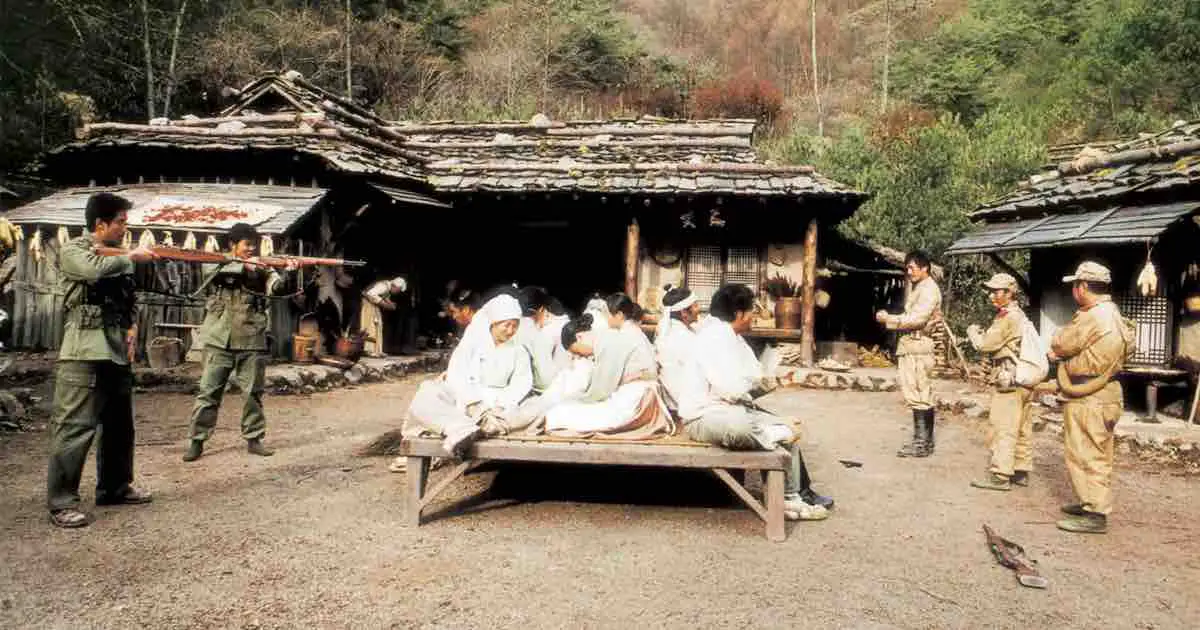
Park Kwang-hyun’s gripping, disturbing war drama is set during the 1950 Korean War, right after the landing of UN Allied Forces. North Korean soldiers, who’ve survived an ambush and a couple of isolated South Korean soldiers, wander through the same woods. They stumble upon a tiny mountainous village called Dongmakgol. The good-hearted villagers aren’t even aware of the war. They cheerfully welcome soldiers of both sides – a wounded American pilot already resides in their hut. To the villagers, the warring soldiers’ ideological rift and authoritative behavior looks plainly ridiculous.
Of course, the nasty outsiders pose a threat to this paradise. The movie isn’t nuanced in its commentary on war and politics. Yet, it makes for an unforgettable tragicomedy, displaying the irredeemable costs of war.
17. A Bittersweet Life (2005)
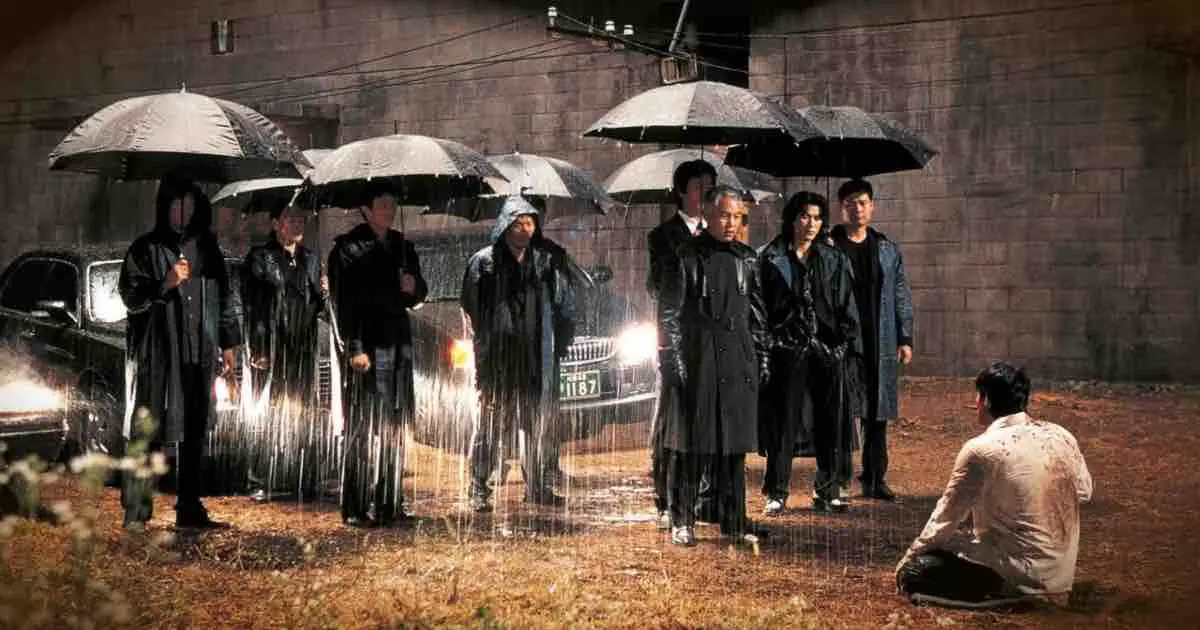
Kim Jee-woon takes a simple gangland story and transforms it into something deeply contemplative using arresting imagery and nuanced performances. Lee Byung-hun plays the calm, but efficient mob enforcer Kim Sun-woo. The boss asks Kim to keep tabs on his young mistress Hee-soo (Shin Min-a). However, Kim finds himself falling for her, and soon Kim is caught in a dangerous situation, where his allies turn out to be his worst enemies.
Director Kim’s film-form blends together John Woo’s frenzied display of violence and Jean-Pierre Melville’s introspective character work. Bittersweet Life lacks emotional development in the latter half amid the bloody action set-pieces. Yet it ends on a brilliant high-note and with a haunting final image. The film’s exploration of themes like desire and fate keep the goings on interesting.
18. The Host (2006)
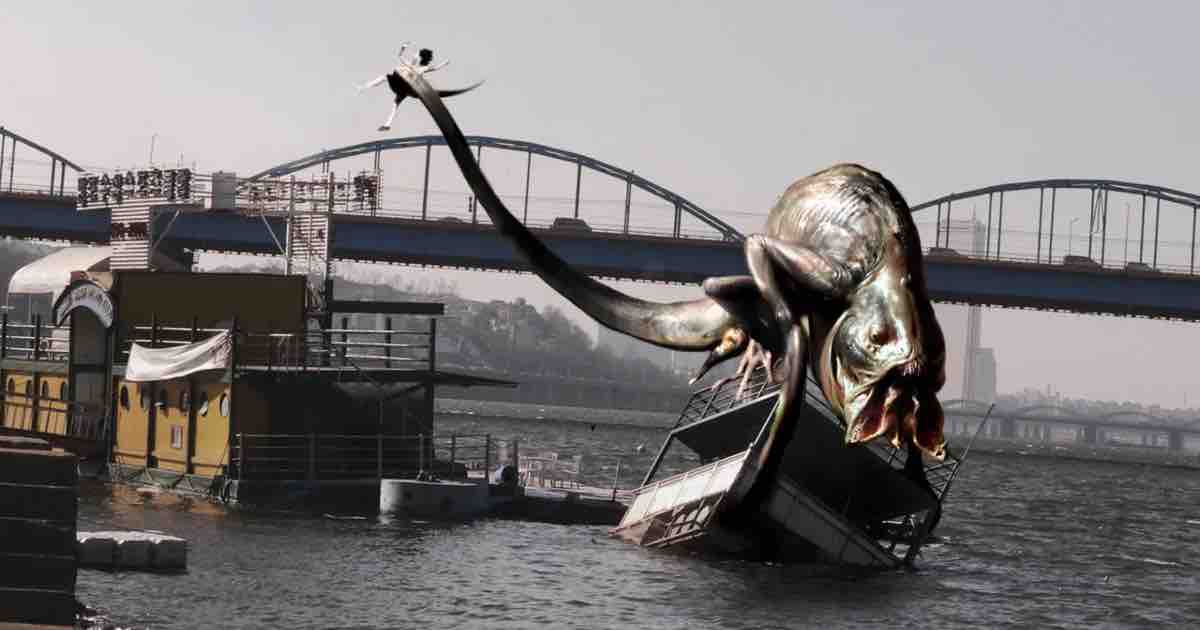
Bong Joon-ho’s reinvigorated monster movie is more complex than effects-heavy escapist Hollywood features. Even the familiar conventions of the genre are shot with a formidable style. Song Kang-ho plays the dim-witted protagonist, whose beloved teenage daughter is carried off by a giant mutant creature, dwelling in the polluted Han River. The family’s misfits come together to rescue the 13-year old girl. They also have to fight the incompetent, arrogant bureaucrats in protective suits.
The Host is part-family comedy and part-political satire. Director Bong Joon Ho astoundingly balances absurd humor with genuinely scary moments.
19. Secret Sunshine (2007)
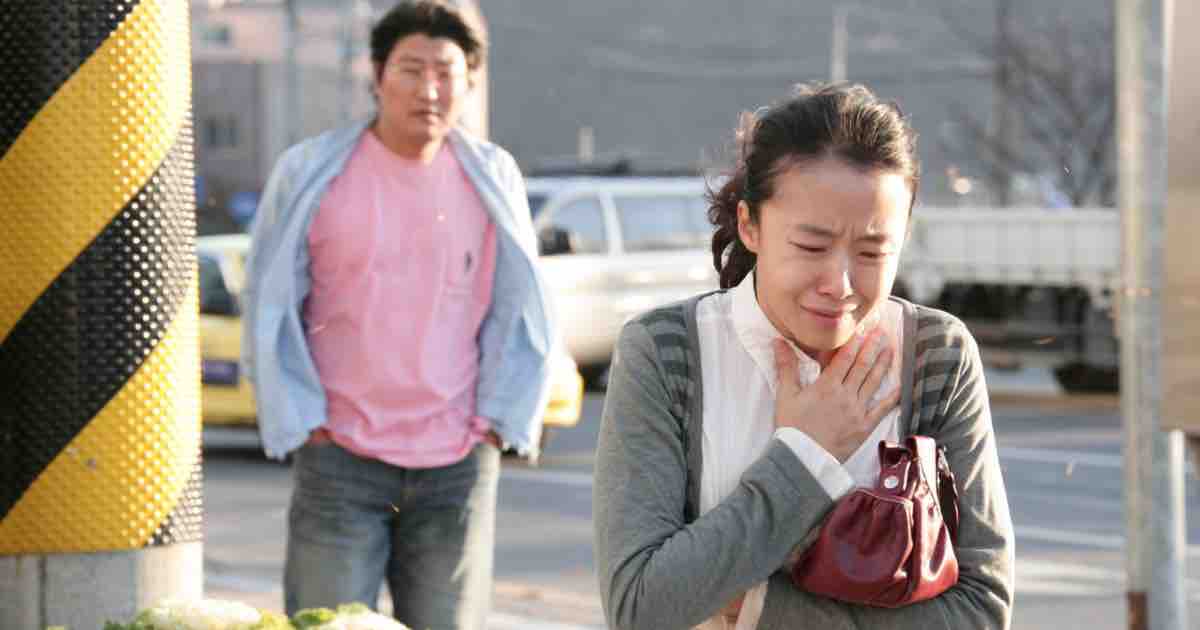
Lee Chang-dong is one of the finest modern filmmakers to intimately address the inner conflicts brought on by loss and prolonged suffering. Secret Sunshine tells the tale of Shin-ae, a widow who’s moved to a small town Milyang with her young son, Jun. She attempts to forge a fresh start after the death of her beloved husband and all seems well as she strikes a friendship with a local mechanic. However, Jun is kidnapped and another tragedy strikes. Shin-ae doesn’t seek revenge but the incident leaves a void and fosters grief.
The film is based on Lee Cheong-jun’s short story The Story of a Bug. The director’s lyrical visual language examines the widow’s torment with stirring details. Jeon Do-yeon’s majestic performance in the central role is another big plus.
20. Breathless (2008)
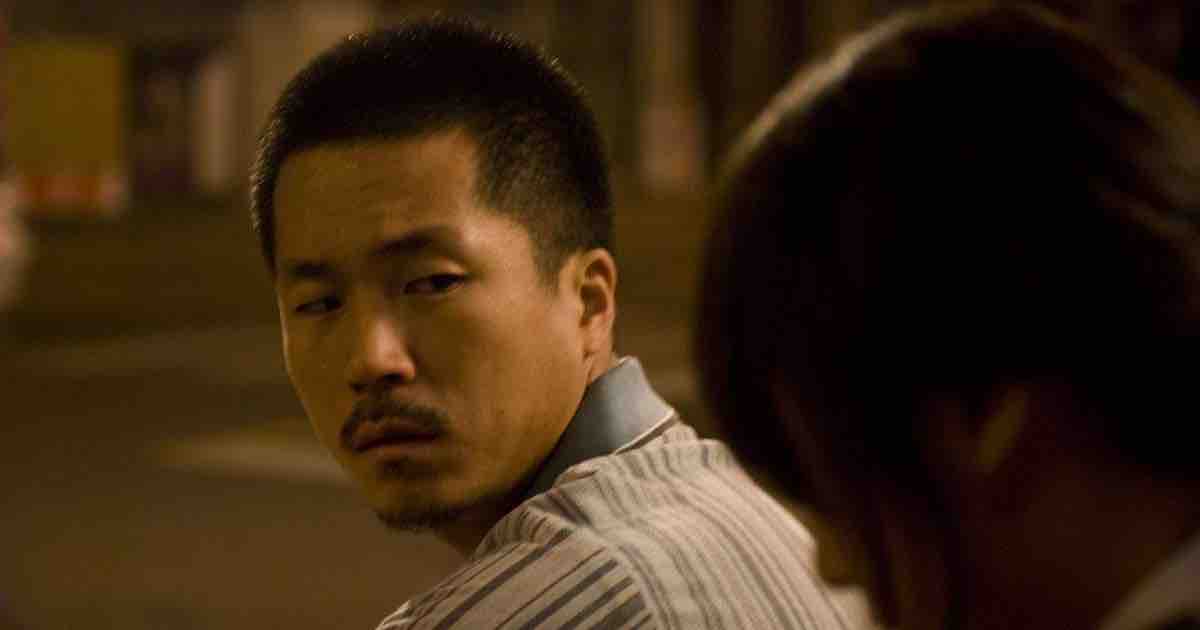
Yan Ik-june directs, writes and plays the central role Sang-hoon in this unsettling gangland flick. Sang-hoon is a petty gangster who works for a loan shark. Even a simple gesture of love has a vicious edge to it now that the violence has such sway over him. His possible salvation arrives in the form of a compassionate young girl named Yeon-hue. Both are victims of domestic violence.
Although Breathless looks like a simple slice-of-life drama, it’s impeccably written and directed. The emotional backdrop and the gritty visual language stand it apart from run-of-the-mill gangster movies.
21. The Chaser (2008)
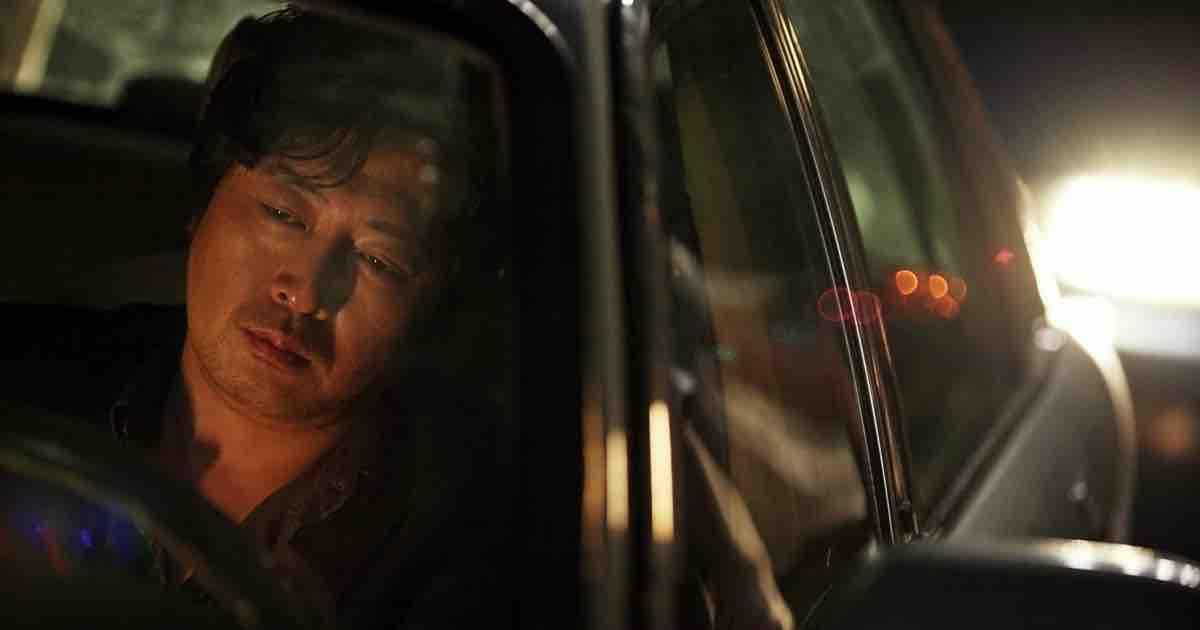
Na Hong-jin’s directorial debut is a brilliant edge-of-the-seat thriller that transcends the police procedural motifs. The protagonist is a former detective-turned-pimp whose girls go missing before clearing their debts. All the girls seem to have met the same mysterious man before their disappearance. Things become messy when the pimp decides to confront this man and find out the truth.
Raw violence and morally complex characters are a staple in Korean thrillers. Here, these elements are taken a notch up as the casually brutal pimp fights a much malevolent serial-killer. The film is violent, both in terms of physicality and visual language. But despite the blood-splatter, Hong-jin’s fast-paced story keeps us intrigued. While The Chaser isn’t as multi-layered as Memories of Murder or Oldboy, it’s still chilling.
22. Castaway on the Moon (2009)

Kim jumps into the Han River after concluding that his life is bleak and hopeless. But even suicide doesn’t go his way and he’s washed up ashore. He’s stranded on a tiny piece of unpopulated land with no connection to the city, except for an unclimbable bridge pier. Kim can’t swim. He becomes a Robinson Crusoe-like figure gazing at the skyline of Seoul. A young woman (also named Kim) who has shut herself in her high-rise apartment accidentally glimpses at Kim and a distinct relationship blossoms between the two societal outcasts.
The director perfectly balance funny and poignant moments. In times of standardization, the film creatively examines the need to celebrate individuality. Castaway on the Moon also offers a gentle critique on capitalism and its adverse effects on our humanity.
23. Mother (2009)
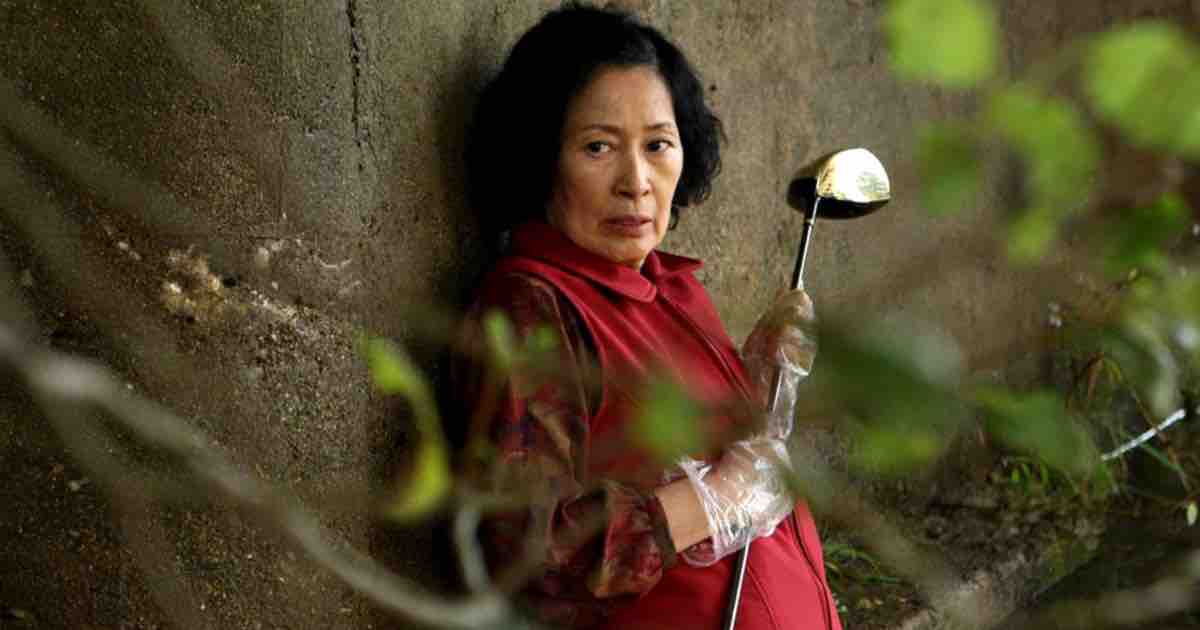
The bond between a mother and a child is the greatest love there is. Director Bong Joon ho uses this simple idea and transplants it into a violent, apathetic world to create a spellbinding murder mystery-cum-family drama. As always, he perfectly balances dry comedy and suspense. The story revolves around a mentally challenged young guy Do-jun and his elderly, overprotective single mother.
Do-jun is forcefully made to confess and arrested in the murder of a local school girl. Nevertheless, the determined mother sets out to find the truth that may set her son free. Like in Memories of Murder, Bong immaculately retains a sense of dread and mystery throughout. Kim Hye-ja is remarkably sensitive as the helpless mother.
24. Thirst (2009)
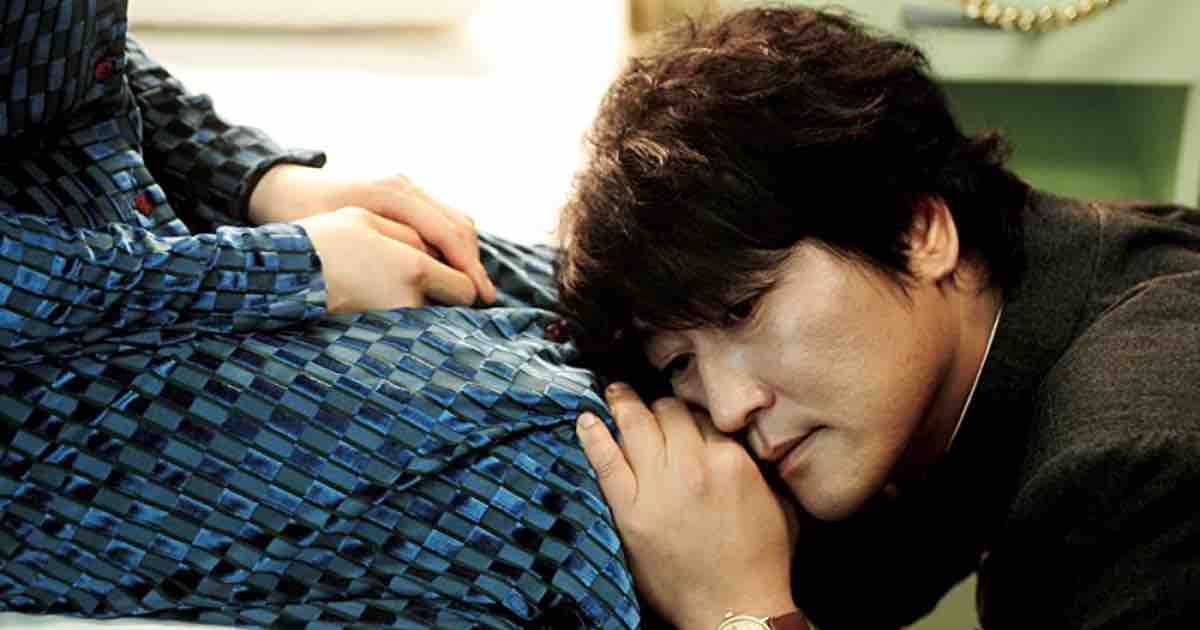
Director Park Chan-wook blends vampire mythology with the basic story of Emile Zola’s novel Therese Raquin. Emile Zola wrote about lust and the madness it provokes. Director Park, also keen to explore tales of individuals losing themselves to lunacy, adds a touch of vampirism. The protagonist is a good-hearted priest who is afflicted with a grisly skin disease. He volunteers for a medical experiment, coughs up a lot of blood, and dies. But miraculously the priest is born again. All he has to do is fulfill his appetite by feasting on blood.
The priest’s morality begins to wane when he meets an oppressed young housewife. Although Thirst is way too long, it’s a lot more fascinating than a standard vampire horror. Park’s gothic atmosphere and pitch-black comedy offers brilliant moments.
25. Poetry (2010)
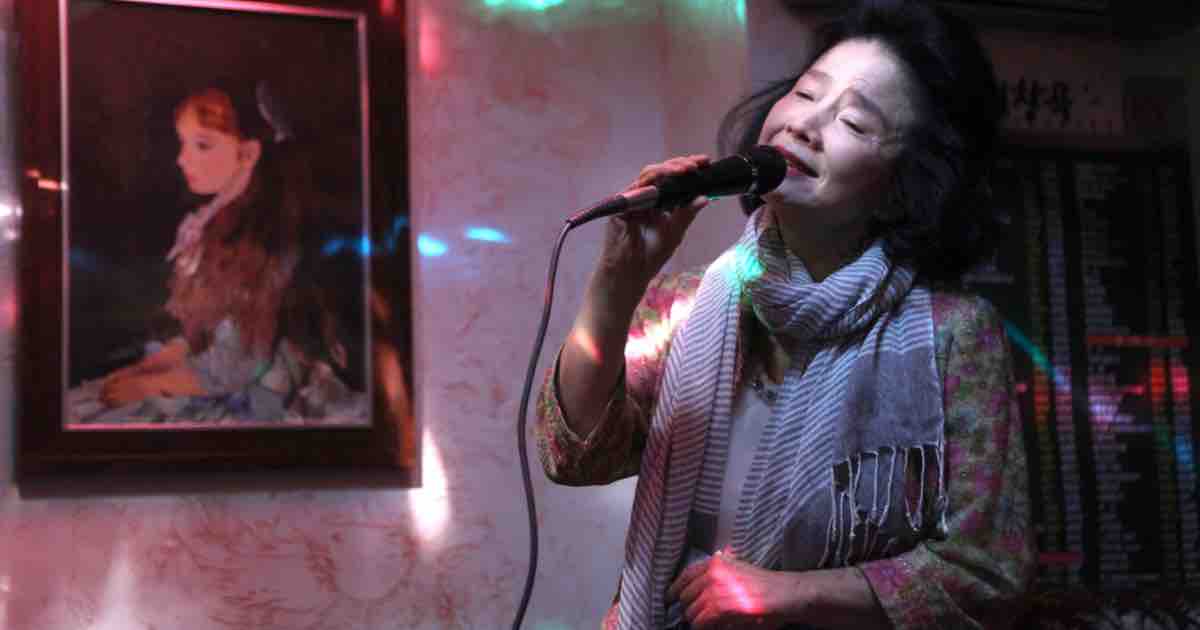
Lee Chang-dong’s sobering metaphysical work, Poetry tells the tale of a lonely elderly woman, caught in a circle of guilt. The old woman develops fresh interest in poetry as she struggles with the onset of Alzheimer’s. In fact, poetry becomes a device for her to enunciate the existential panic. And, there’s a woeful irony in this. A woman learning the language of poetry while she’s forgetting the basic vocabulary.
The film is also a fine study of a rigid patriarchal system, where women’s words largely go unheard and compassion often unreciprocated. Dong takes a more patient approach to explore his character’s grief rather than opt for melodrama. Veteran actress Yun Jung-hee offers a sublime central performance. Her unforgettable face is filled with memories of the past, as well as optimism for new possibilities.
26. The Yellow Sea (2010)
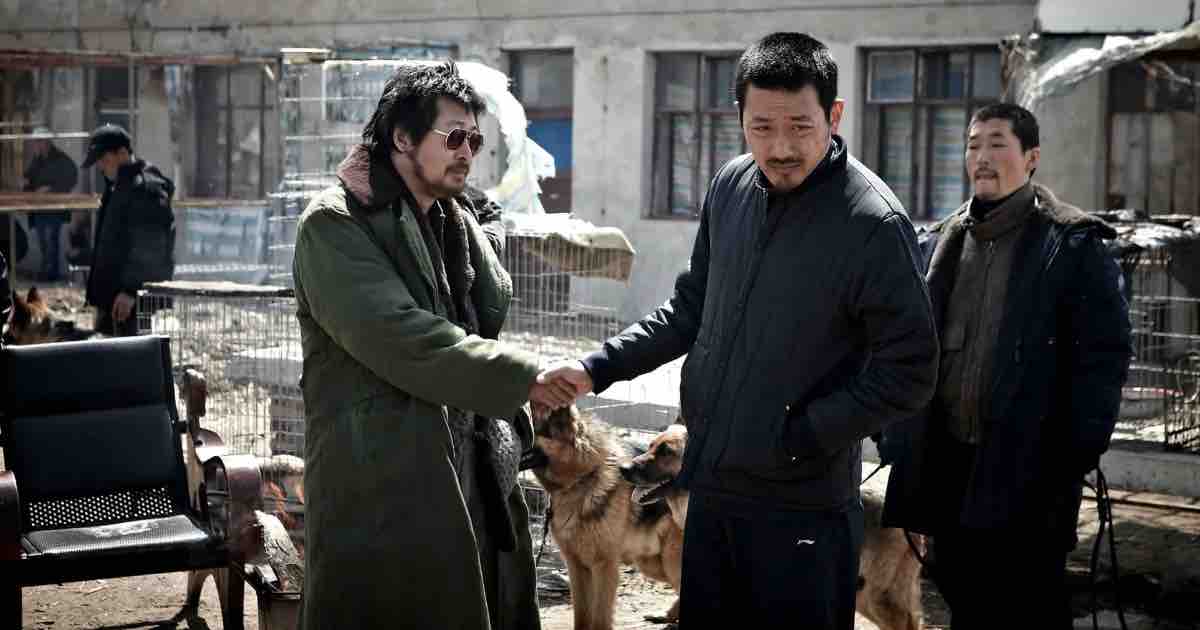
Na Hong-jin’s sophomore effort is as viscerally thrilling as his debut film The Chaser. The protagonist Gu Nam is a Joseon-jok, a name given by South Koreans to millions of ethnic Korean people living outside the Korean peninsula (in China). Nam works as a taxi driver squandering the little money he earns in gambling. It’s been six months since he last heard from his wife, who went to work in South Korea. Desperate for money, Nam accepts the offer to murder a professor in Seoul.
Yellow Sea offers an intriguing mix of two sub-genres – neo-noir and black comedy. It packs unbelievable coincidences and characters, driven by rage and vengeance. The only flaw is that it takes some time to figure out the multiple characters and their motives in the story.
27. I Saw the Devil (2010)
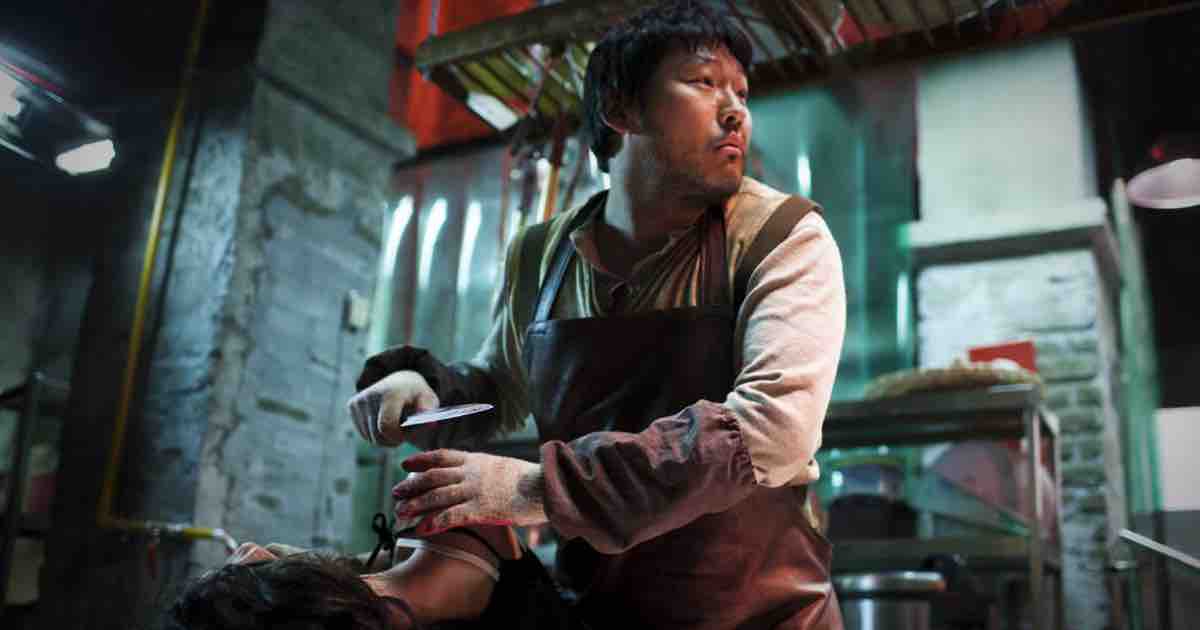
Kim Jee-woon’s revenge thriller is well known for its notorious violent sequences and murky moral core. A sadistic serial killer, who has long evaded the lawmen, brutally kills the fiancee of a special agent and the daughter of a retired police chief. The special agent easily locates the serial killer. But his social experiment to inflict prolonged pain upon the serial killer inadvertently result in a murderous rampage.
Kim Jee-woon brilliantly visualizes the cat-and-mouse scenarios. Some of the action set-pieces are greatly disturbing and don’t offer any cathartic release. The film is more about the protagonist seeing the ‘devil’ within himself than encountering the monstrous killer. Both the Korean star actors Lee Byung-hun and Choi Min-sik are terrific as leads. The later half of the narrative gradually brings up certain contemplative themes, which question the nature of revenge.
28. Silenced (2011)
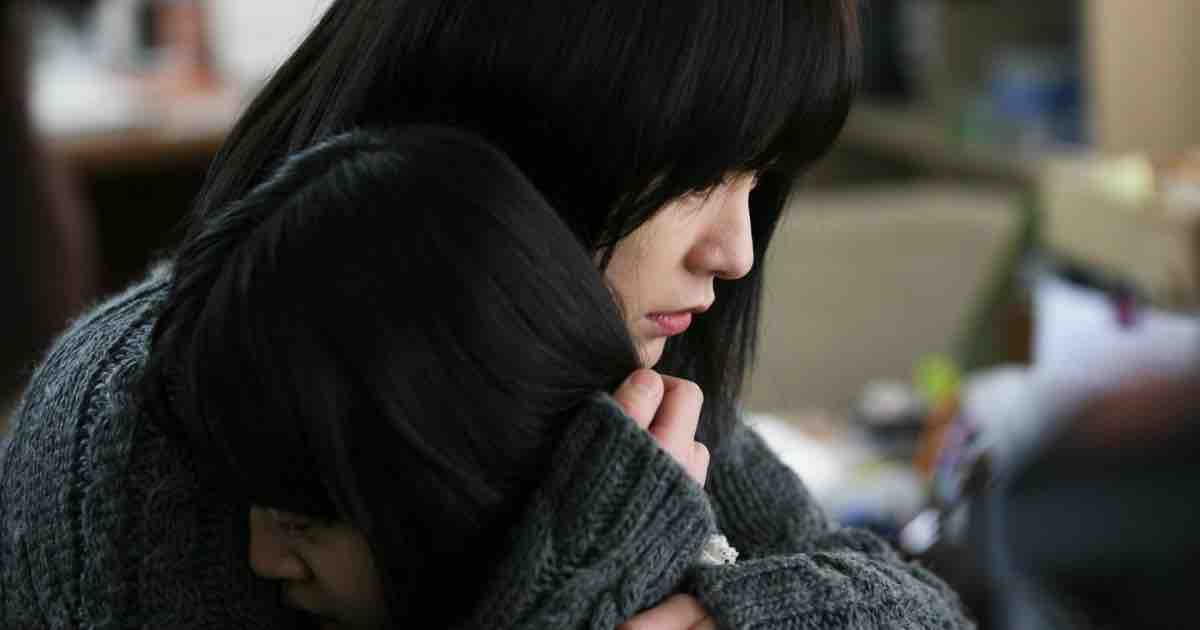
Silenced leaves us speechless for its haunting depiction of sexual, physical and corporal abuse, inflicted on the young, hearing-impaired students. The film draws from real-life events, depicted in the controversial online novel Dogani. Popular Korean actor Gong Yoo plays the central role of a teacher, who relocates to a small town. With the help of a human rights activist, he unearths sleazy crimes committed by a school’s headmaster and admin head. A prolonged legal battle ensues.
Unfortunately, the judicial system also was as twisted and corrupted as the pedophiles’ mind. Silenced is a painful watch. Some of the film’s graphic depiction of child abuse can be hard to shake off. At the same time, Silenced never emotionally manipulates us with its immensely tragic narrative. It painstakingly makes us feel rage over such social injustices.
29. The Wailing (2016)
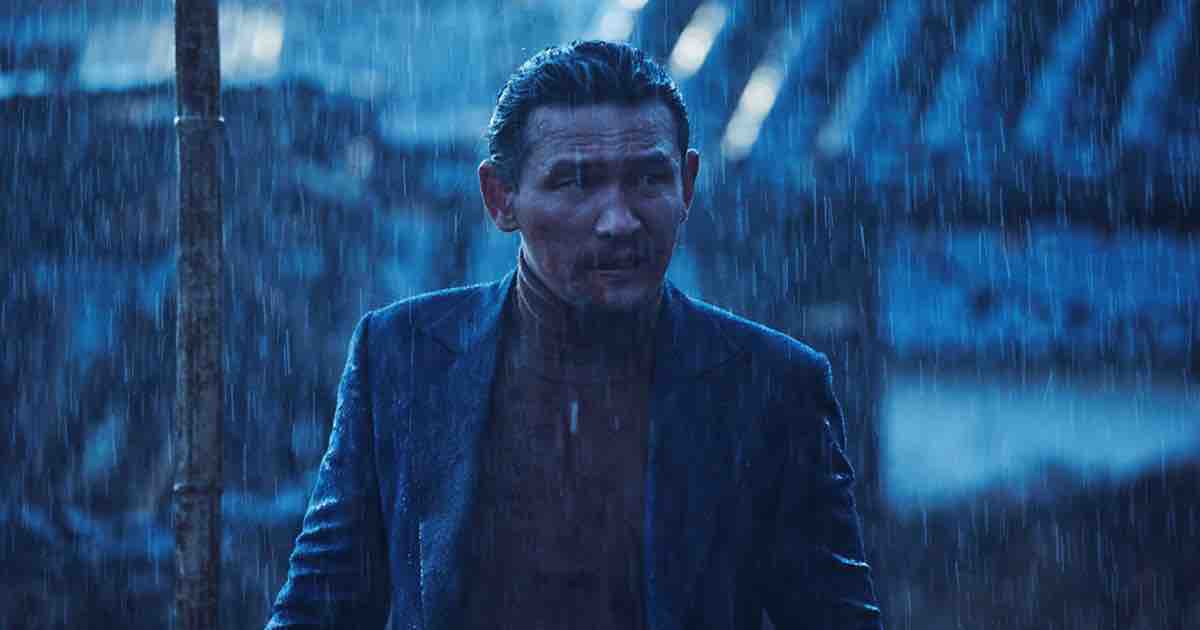
Korean filmmakers create impeccable visuals to portray disorder and chaos. Na Hong-jin’s The Wailing is further proof that nobody can outdo them in that space. One of the best horror movies of the century, The Wailing is a fine mix of horror and murder/mystery genre.
The film revolves around random killings in a small town and an inept police officer trying to solve the complex mystery. It has terrifying set-pieces and is coated with layers of ambiguity. The bone-chilling visceral thrills perfectly compliment the thematic weight of the narrative. The hard-to-decipher final act demands a second viewing to put together the puzzle. Altogether, it’s a rare genre film that sharply explores the themes of doubt and fear.
30. The Handmaiden (2016)
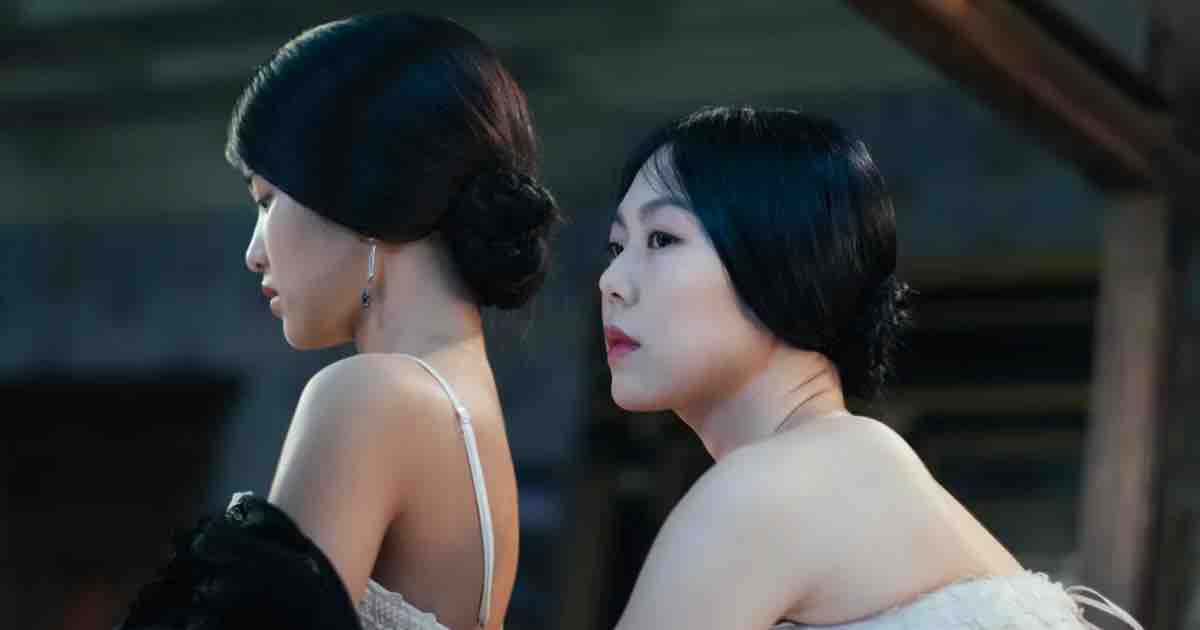
Park Chan-wook chose Sarah Waters’ provocative novel Fingersmith to return to the Korean movie industry after a 6-year hiatus. The Handmaiden, like Park’s earlier masterworks, is filled with sumptuous imagery, while keeping its touch of humanistic core. He sets the narrative in the 1930s during the Japanese occupation of the Korean peninsula. It revolves around the forbidden love between a Japanese heiress (Kim Min-hee) and a crafty young girl (Kim Tae-ri).
From a figurative and literal perspective, the narrative and its characters are spectacularly twisted. Kim Min-hee and Kim Tae-ri’s phenomenal performances won them international recognition and popularity within the Korean film industry. On the whole, The Handmaiden is an elegant Gothic masterpiece about oppression. And the oppression faced by the women are in two forms: patriarchal and colonial.
31. Microhabitat (2017)
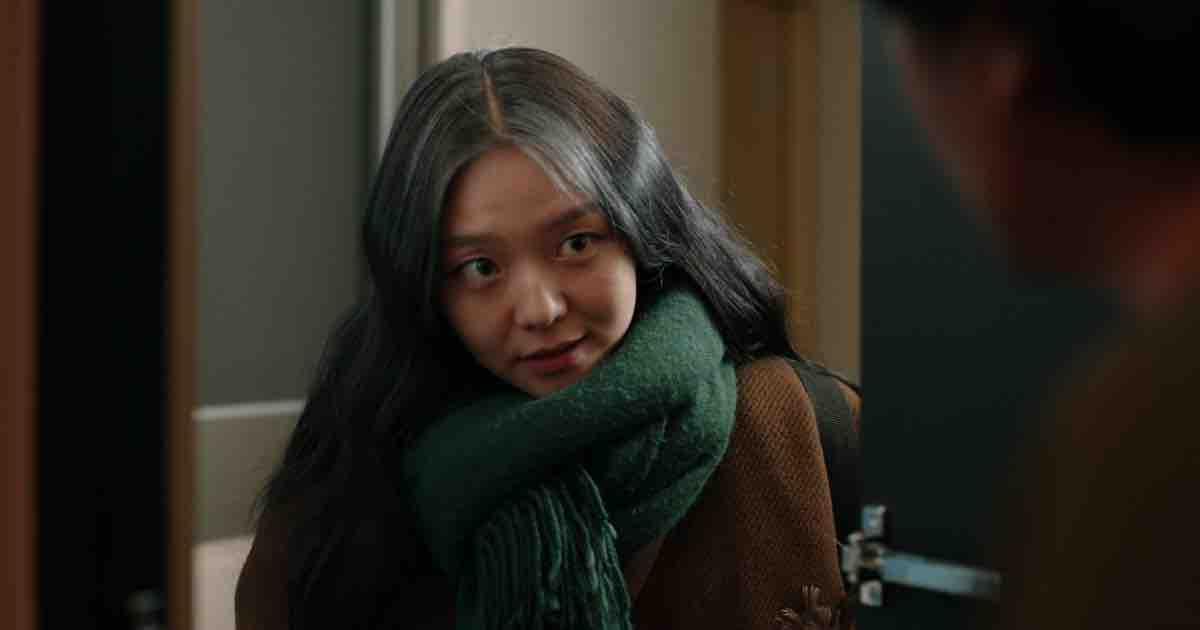
Jeon Go-woon’s impressive directorial debut Microhabitat offers a melancholic and thoughtful portrayal of a dispossessed young woman. The narrative revolves around Miso, a woman in her early 30s who works as a housekeeper. Cigarettes and alcohol are the only pleasures in her life, and she assigns a separate budget for them apart from the house rent. When the cigarette prices are hiked and the landlord raises the rent, Miso is left to make a hard choice.
Microhabitat is a fascinating character study as well as an examination of the cutthroat social reality. Jeon follows her protagonist’s journey through the city as she meets her old friends. Despite the sprawling vistas of Seoul, every individual in the narrative seems to be living in cramped space while also dealing with enormous emotional pressure. Eventually, it becomes an ode to the poor yet self-determined people.
32. Burning (2018)
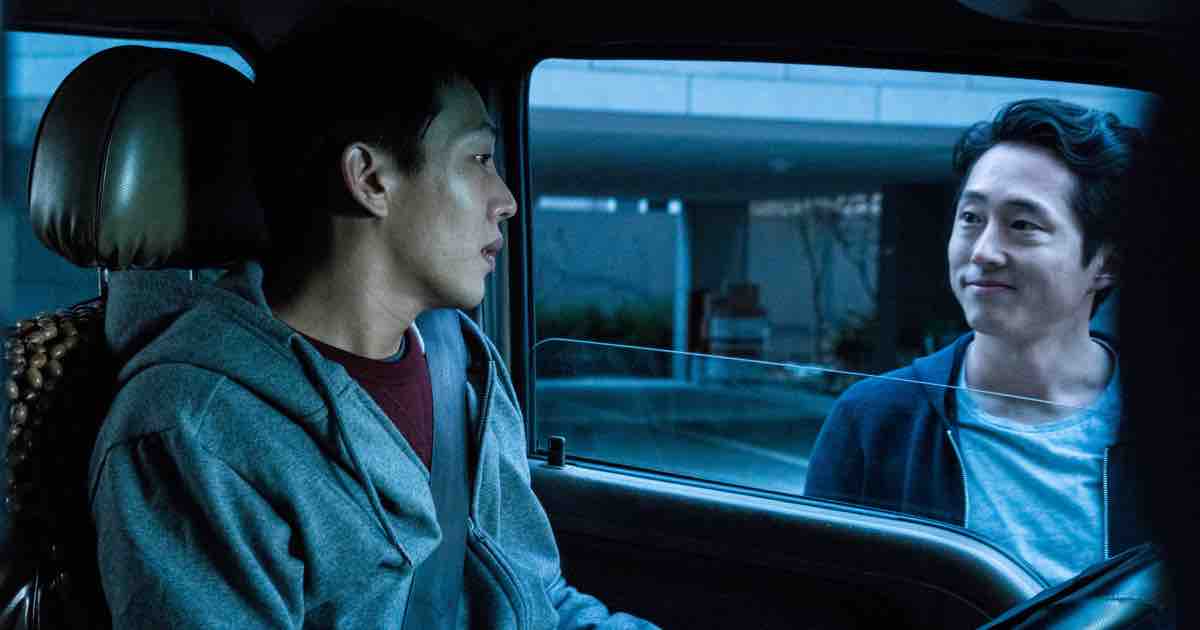
Lee Chang-dong is known for showcasing the callousness of modern society through his profound character studies. His protagonists are often social outcasts. Loosely based on Haruki Murakami’s short story, Burning opens as a love story. Jeung-su, an aspiring writer, meets his old school friend, Hae-mi and they start dating. Hae-mi goes on a trip to Africa. When she returns she is accompanied by a handsome and wealthy guy named Ben. Soon, Hae-mi mysteriously disappears and Jeung-su is haunted by her absence.
Burning defies categorization. There’s a love triangle of sorts and it has the ingredients of a perfect mystery thriller. But Lee Chang-dong is more interested in focusing on the deeply buried human emotions like jealousy, yearning, suspicion, and anger. The film maintains its ambiguous tone throughout and we are left to contemplate on the unexpressed, unseen aspects of the story.
33. House of Hummingbird (2018)
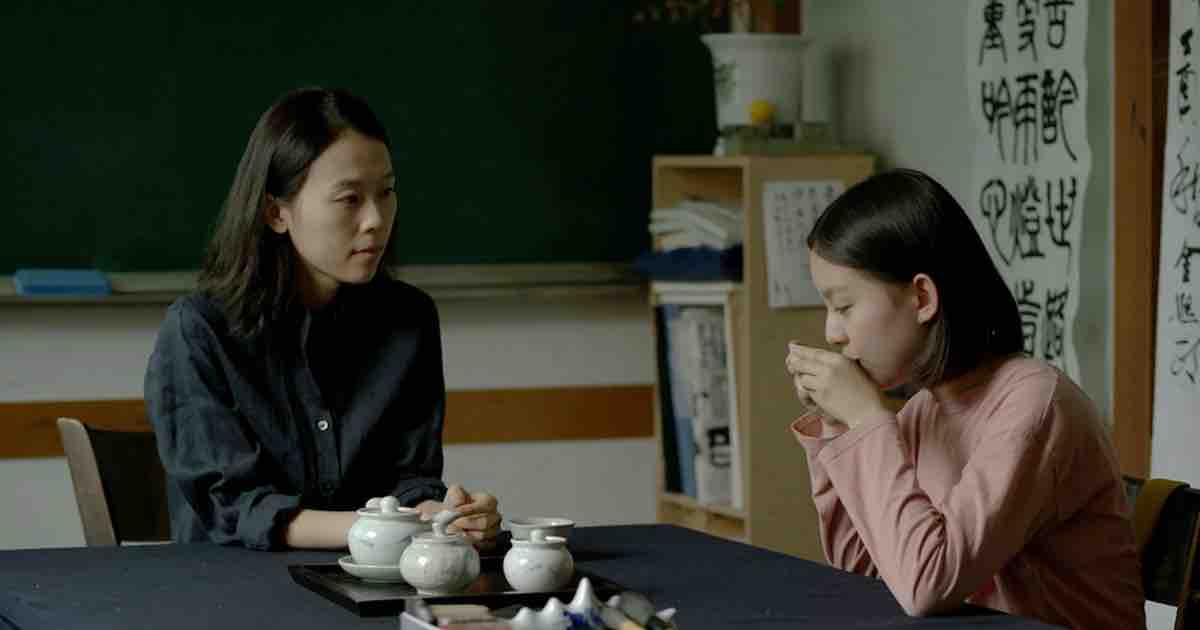
Kim Bora’s sensational directorial debut House of Hummingbird is a rich and deeply evocative coming-of-age drama. It’s set in the year 1994, in the Gangnam district of Seoul. The tale follows the shy and lonely 14-year old Eun-hee, the third child of her dysfunctional family. Her parents run a small rice cake store and are busy quarreling with each other. Eun-hee struggles to navigate her way through all the abuse and suffering.
The story unfolds from the perspective of Eun-hee, which lends the film a wonderful lived-in feeling. The subtle period details and the societal pressures of the time add layers to the narrative. Writer/director Kim showcases an astute understanding of the teenagers’ temperament. Eventually, what makes this film very special is Park Ji-hu’s quiet yet powerful performance in the central role.
34. Parasite (2019)
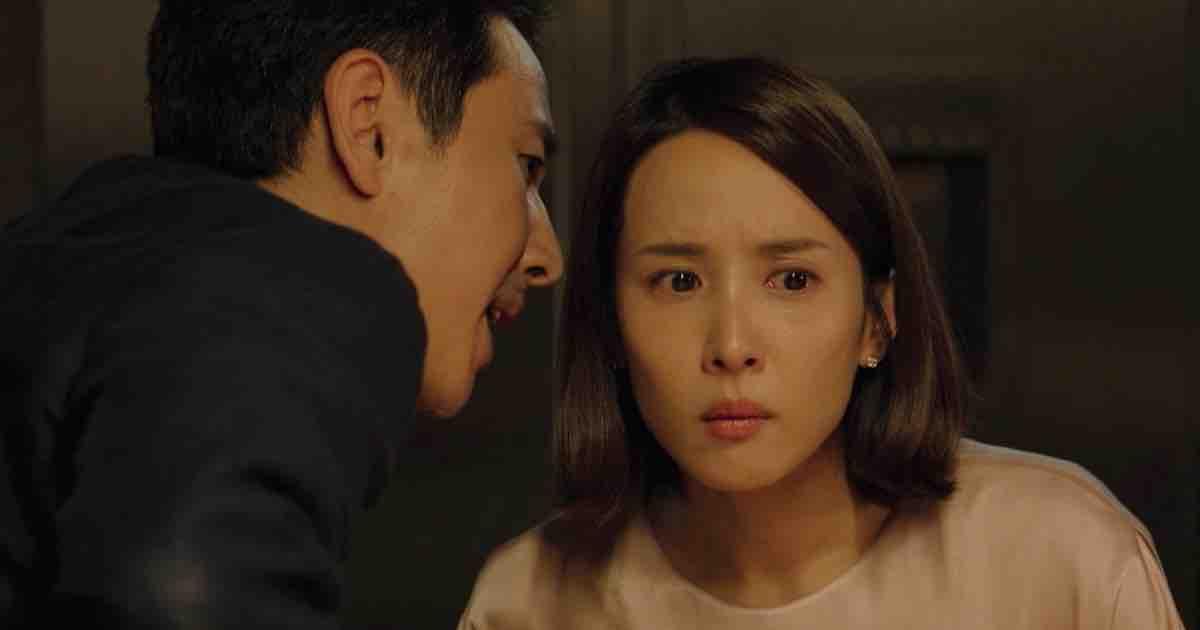
Bong Joon-ho’s Palme d’Or winning social satire tells a timeless story about the rich and the poor. But the brilliance lies in the layers of fascinating details that offer a unique viewing experience. The narrative is centered on two nuclear families in Seoul. The poor Kims con their way to work for the wealthy Parks.
The horrors of economic disparity wreak havoc on both the families. Parasite largely unfolds in gray zones without assigning blame to a particular class. It shows how antipathy is rooted in both sides and the villain here is the stratified system. Director Bong Joon Ho offers a gripping screenplay and unique staging techniques. The use of montage to highlight the Kim family’s plans at the end of first-half, will remain as one of the best scenes in Korean movie history.
35. The Woman Who Ran (2020)
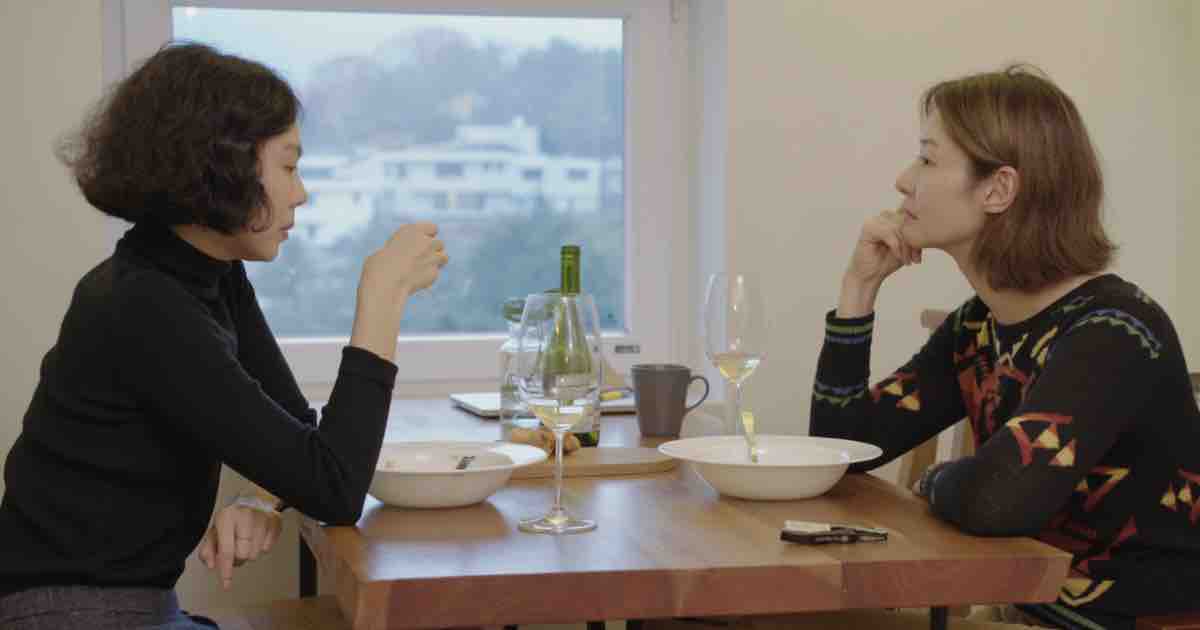
Hong Sang-soo and his actors have the knack to make every-day conversations and tasks look beautiful and relaxing on-screen. This is perfectly realized in his uneventful yet playful drama The Woman Who Ran. Arguably, the film is also Hong’s most female-centric work. It focuses on Gam-hee, a married Seoul florist who visits her three female friends when her husband is away on a business trip. Divided into three segments, Gam-hee and her friends eat, drink soju, and engage in realistic conversation that gradually brings up their sadness and disappointment in life.
In each segment, there’s also some unexpected intrusion by passive-aggressive men which infuses understated humor to the proceedings. In Hong’s films, little might happen on-screen. Yet he evokes complex emotions behind a seemingly simple encounter or a conversation.
Conclusion
There we are! These Korean movies of the 21st century should be on your watchlist. The global craze for Korean pop-culture continues unabated. The Korean wave is defined by the term ‘Hallyu,’ a collective term used for the global success of South Korean cinema, music, food, and fashion. With the international success of films like The Admiral: Roaring Currents, Train to Busan and Parasite, Korean cinema remains one of the world’s most vital film industries.

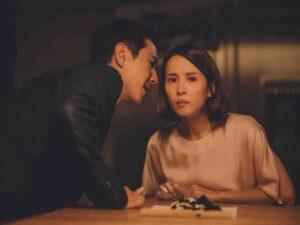
Definitely need to fit this movie into your list. Its a psychological thriller comparable to Se7en.
http://www.imdb.com/title/tt0304120/
Fairly! This was a really amazing post. Thank you